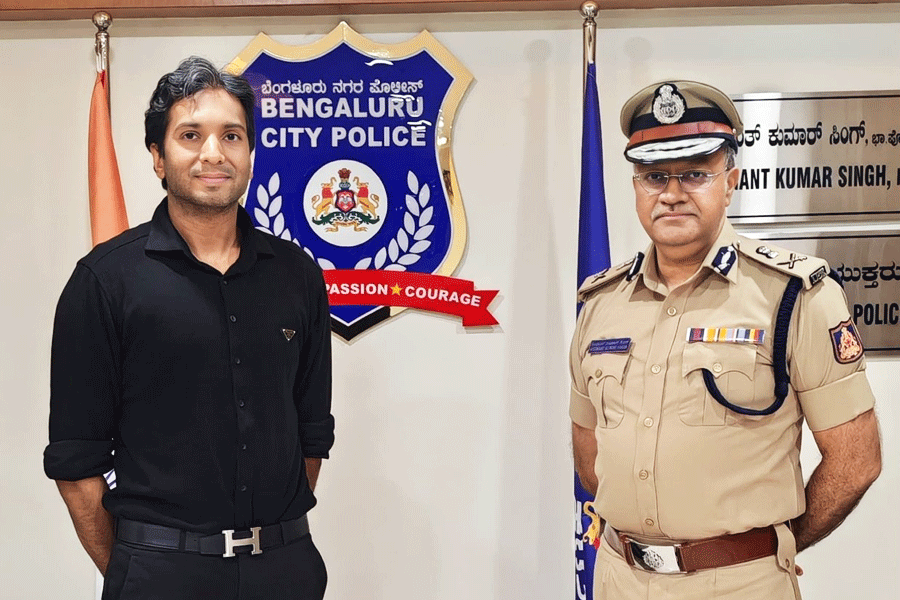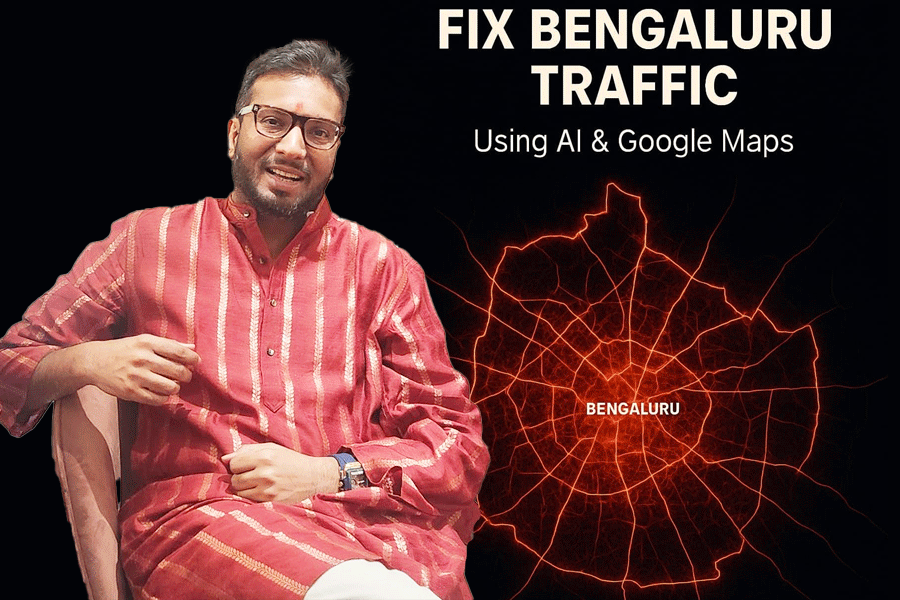EaseMyTrip co-founder Prashant Pitti has announced a comprehensive initiative that he believes could reduce traffic in the city by 25 to 30 per cent within a year.
Pitti met with senior officials from the Bengaluru Traffic Police (BTP), Bruhat Bengaluru Mahanagara Palike (BBMP), and the City Police to discuss actionable solutions.
“MAJOR UPDATE on Bangalore Traffic Project! I am confident of improving Bangalore traffic by 25-30 per cent within a year's time.” Pitti wrote on X.
Recently, Pitti had pledged Rs 1 crore to tackle Bengaluru’s traffic congestion, after he was stuck in traffic for over two hours while trying to cover just 11 kilometres late at night in Bengaluru. He said he spent 100 minutes stranded at a choke point on Outer Ring Road, with no traffic light or police officer in sight.
Pitti has revealed that he has brought together key public and private stakeholders, including government officials, Google’s team, Indian Institute of Science (IISc) professors, scientists, road engineers, and traffic-tech entrepreneurs.
The initiative aims to use data-driven methods to tackle the city’s persistent traffic issues.
He highlighted that both BTP and IISc already possess simulation models capable of generating multiple re-routing options to reduce travel time. To improve the accuracy of these models, Pitti has requested mobility data from companies including Google, Uber, Ola, and Rapido.
Pitti emphasised improving the government’s existing complaint app for potholes and said he intends to take ownership of the platform and expand its functionality to include issues such as illegal parking, broken traffic signals, wrong-side driving, waterlogging, and vehicle breakdowns.
To increase transparency, all complaints along with the corresponding action taken will be displayed with timestamps.
Pitti also proposed a “Hyperlocal Rain Predictor” to help the city better plan infrastructure and maintenance work.
“Govt closes the road to do infra/maintenance work, but then it starts raining on that patch of road and work halts. This leads to crazy downtime and traffic congestion. Hyperlocal Rain Predictor project will also allow us to fix drainage issues, even before it happens," he wrote.
A pilot project is already underway to test “Green Wave Signals,” a system that synchronises traffic lights to allow vehicles to move in coordinated waves rather than stop at every junction. “We will analyse the results to see if it makes sense to be done at city level,” Pitti added.
Responding to criticism that Bengaluru’s traffic issues stem from poor infrastructure, Pitti wrote, “Many people mentioned in my last post ‘Bangalore Traffic is an Infra problem’, congrats on stating the obvious. If we continue to wait for the infra to become better, then we are merely playing a catch-up game with the West.”
“There is so much scope to optimise current infra, and I would rather focus on that. This is no longer about rants or blaming the system. It's about practical optimism, believing that with data, intent, and collaboration, we can improve what feels unfixable.”
Pitti has invited the public to join a WhatsApp community where they can post specific traffic issues faced at junctions or roads. These complaints will be compiled and shared with relevant authorities.
Bengaluru’s traffic congestion continues to worsen, with fresh data painting a grim picture of the city’s mobility crisis.
As per a report by The Economic Times, over 3 lakh new private vehicles were registered in the city between January and June 2025, with nearly 50,000 added in June alone.
This surge has pushed the daily average congestion to 189.6 km, with a staggering 2,377 km of cumulative traffic jams recorded on June 11.










